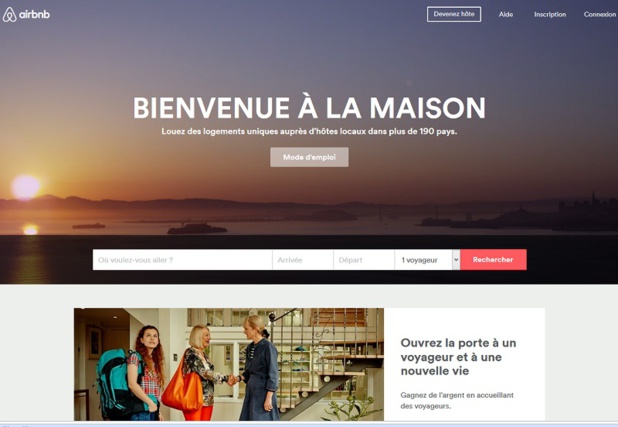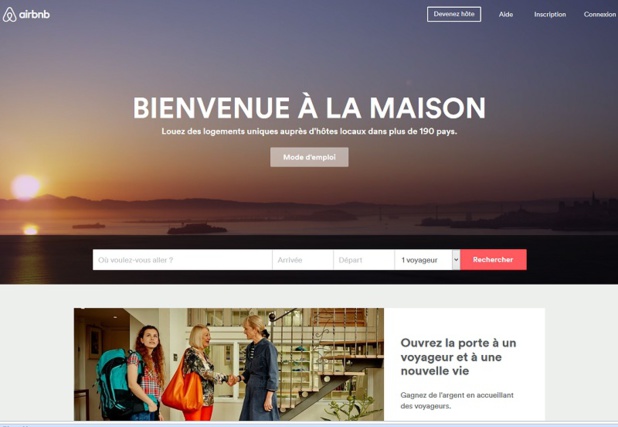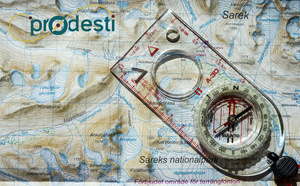
What can the traditional hotel sector learn from the case of AirBnB?
This is a topic that has been angering people for a while.
Hoteliers are declaring war against Airbnb, denouncing it for unfair competition.
In Paris, the world’s most visited city, 50,000 accommodations are offered by Airbnb: simply put, the French capital is the world’s primary city on the peer-to-peer accommodations website.
While the tourist tax is collected by the company since October 1st, 2015, French hoteliers remain unsatisfied: rentals are still not subject to the VAT tax and the hygiene and security norms imposed to hoteliers are not applied to Airbnb.
In this difficult context, it may be necessary for French hoteliers to question their own model.
Because laws and regulations are not the only culprits for the attraction of tourists to collaborative accommodation platforms.
Airbnb’s success is not by chance and the reasons behind that are plentiful. Thus, hoteliers, why not try to learn from this bothersome competitor and gain some inspiration?
This is a topic that has been angering people for a while.
Hoteliers are declaring war against Airbnb, denouncing it for unfair competition.
In Paris, the world’s most visited city, 50,000 accommodations are offered by Airbnb: simply put, the French capital is the world’s primary city on the peer-to-peer accommodations website.
While the tourist tax is collected by the company since October 1st, 2015, French hoteliers remain unsatisfied: rentals are still not subject to the VAT tax and the hygiene and security norms imposed to hoteliers are not applied to Airbnb.
In this difficult context, it may be necessary for French hoteliers to question their own model.
Because laws and regulations are not the only culprits for the attraction of tourists to collaborative accommodation platforms.
Airbnb’s success is not by chance and the reasons behind that are plentiful. Thus, hoteliers, why not try to learn from this bothersome competitor and gain some inspiration?
Care for the hotel’s visuals
Autres articles
-
 Airbnb sur Chat GPT : "oui... mais !" selon Brian Chesky
Airbnb sur Chat GPT : "oui... mais !" selon Brian Chesky
-
 Airbnb connecte les voyageurs avant, pendant et après leur expérience
Airbnb connecte les voyageurs avant, pendant et après leur expérience
-
 Airbnb : la Meuse et Paris stars de l’été 2025
Airbnb : la Meuse et Paris stars de l’été 2025
-
 Airbnb dévoile les lauréats du Grand Prix du patrimoine et tourisme local
Airbnb dévoile les lauréats du Grand Prix du patrimoine et tourisme local
-
 Coupe du Monde : Airbnb entre dans le jeu avec la FIFA
Coupe du Monde : Airbnb entre dans le jeu avec la FIFA
Internet has never been used this much by tourists to prepare, share, reserve their future trip.
And to do so, one thing is absolutely essential for the internet user looking for information: images.
This is what Airbnb understood from the start by offering photos of great quality on the website in order to give travelers the desire to reserve.
In fact, the company focuses strongly on these photos, since it provides peers renting their apartment to have access to a professional photographer in order to enhance their offer.
Today, again, very few hoteliers focus closely on the visuals they provide on their own websites or on distributing websites (OTAs or Tour-Operator websites.)
The images are not appetizing and they do not enable tourists to truly trust in the establishment.
Yet, this is the first thing that users look at when browsing on the web to decide on where to book their stay.
The photos attract the potential future client and have a real decision-making power; hoteliers will lose these clients if they do not closely care for their choices of visuals.
Furthermore, images have a true emotional impact on the client: they have to make her travel from her computer! This improvement lever is easy and quick to implement and will enable to (re)capture clients.
And to do so, one thing is absolutely essential for the internet user looking for information: images.
This is what Airbnb understood from the start by offering photos of great quality on the website in order to give travelers the desire to reserve.
In fact, the company focuses strongly on these photos, since it provides peers renting their apartment to have access to a professional photographer in order to enhance their offer.
Today, again, very few hoteliers focus closely on the visuals they provide on their own websites or on distributing websites (OTAs or Tour-Operator websites.)
The images are not appetizing and they do not enable tourists to truly trust in the establishment.
Yet, this is the first thing that users look at when browsing on the web to decide on where to book their stay.
The photos attract the potential future client and have a real decision-making power; hoteliers will lose these clients if they do not closely care for their choices of visuals.
Furthermore, images have a true emotional impact on the client: they have to make her travel from her computer! This improvement lever is easy and quick to implement and will enable to (re)capture clients.
Unite around an event
Airbnb’s strength? Its community!
Whether it is offline or online, the website pampers all the players of success: travelers and hosts. Online, Airbnb connects around its values and incites users to share their experiences via their Facebook or Twitter accounts.
Furthermore, Airbnb made all of its users participate during the label’s rebranding, in 2014: another way to unite the community around one entity!
Offline, the company organizes many events every year to meet with the community, exchange with them, and, if possible, make its members ambassadors of the brand: and it works!
While organizing events with clients may be more complicated for a hotel, it is possible to create an online community with small means. Yet, today again, very few hoteliers have tackled the digital world.
How many hoteliers opened a Facebook page without going through the trouble of adding content regularly? Admittedly, the management of social networks requires time, if not monetary, investment. But the benefits - if everything is well managed - are very positive.
The act of creating a community and to unite around a brand or hotel will be beneficial in terms of loyalty, popularity and, especially, image.
The competition is so rough that social networks - if used well - can tilt the balance in favor of one place or another. Social media have the advantage that it is possible, in a very quick manner, to develop the client’s feeling of belonging to a hotel. “Belong anywhere,” states Airbnb…
Whether it is offline or online, the website pampers all the players of success: travelers and hosts. Online, Airbnb connects around its values and incites users to share their experiences via their Facebook or Twitter accounts.
Furthermore, Airbnb made all of its users participate during the label’s rebranding, in 2014: another way to unite the community around one entity!
Offline, the company organizes many events every year to meet with the community, exchange with them, and, if possible, make its members ambassadors of the brand: and it works!
While organizing events with clients may be more complicated for a hotel, it is possible to create an online community with small means. Yet, today again, very few hoteliers have tackled the digital world.
How many hoteliers opened a Facebook page without going through the trouble of adding content regularly? Admittedly, the management of social networks requires time, if not monetary, investment. But the benefits - if everything is well managed - are very positive.
The act of creating a community and to unite around a brand or hotel will be beneficial in terms of loyalty, popularity and, especially, image.
The competition is so rough that social networks - if used well - can tilt the balance in favor of one place or another. Social media have the advantage that it is possible, in a very quick manner, to develop the client’s feeling of belonging to a hotel. “Belong anywhere,” states Airbnb…
Think local and authentic
If there is one lesson that hoteliers must take from Airbnb’s success, it is the following: clients are looking for authenticity. Thanks to sharing economy platforms and Airbnb, in the lead, tourists are guaranteed to travel, sleep, and eat locally.
Of course, it is not possible for a hotel to offer exactly the same service. Yet, driving the client to the heart of local products and culture is conceivable.
If the hotel has a restaurant, why not change the menu? Offer products from the region or introduce innovative specialities? If the budget allows it, some elements of decoration true to the region’s color can offer the place a more authentic touch.
Authenticity is an important facet of the success of the collaborative economy. Sharing, and friendliness are key during the rental of an apartment between individuals. In a hotel, it is necessary to involve staff and to train them to host in this manner.
Check-in must be of high quality, but also should be customized to meet the clients’ expectations. This means to gain information on the client before her arrival to know what her needs are and to satisfy them as best as possible.
Furthermore, the role of the receptionist (or concierge, if the hotel offers this service) will be instrumental to inform the client on the visits and activities to explore during the stay. Always remember the key term: authenticity! Today’s tourist wants to discover unique places when traveling, places that only locals are familiar with: let’s take them to these places!
Airbnb, and other collaborative accommodations platforms, are seen in poor light by hoteliers that regard them as dangerous competitors. Yet, I persist in thinking that these websites offer alternatives to a more traditional mode of accommodation.
Hence, hoteliers, try to learn from these examples of success!
Of course, it is not possible for a hotel to offer exactly the same service. Yet, driving the client to the heart of local products and culture is conceivable.
If the hotel has a restaurant, why not change the menu? Offer products from the region or introduce innovative specialities? If the budget allows it, some elements of decoration true to the region’s color can offer the place a more authentic touch.
Authenticity is an important facet of the success of the collaborative economy. Sharing, and friendliness are key during the rental of an apartment between individuals. In a hotel, it is necessary to involve staff and to train them to host in this manner.
Check-in must be of high quality, but also should be customized to meet the clients’ expectations. This means to gain information on the client before her arrival to know what her needs are and to satisfy them as best as possible.
Furthermore, the role of the receptionist (or concierge, if the hotel offers this service) will be instrumental to inform the client on the visits and activities to explore during the stay. Always remember the key term: authenticity! Today’s tourist wants to discover unique places when traveling, places that only locals are familiar with: let’s take them to these places!
Airbnb, and other collaborative accommodations platforms, are seen in poor light by hoteliers that regard them as dangerous competitors. Yet, I persist in thinking that these websites offer alternatives to a more traditional mode of accommodation.
Hence, hoteliers, try to learn from these examples of success!
Pauline Dugoujon worked close to 10 year in the hotel sector. From luxury to affordable, Pauline went through all ranges of services: operational (bars, reception, breakfast) but also strategic (revenue-management, reservations, and seminars.)
All of these experiences have enabled her to acquire a wide perspective of the sector: its challenges, opportunities, and possible evolutions. Since early 2015, Pauline tackled the Community Management world and is managing the social networks presence of tourism, hotel, and restaurant entreprises.
www.blogdeshoteliers.fr
All of these experiences have enabled her to acquire a wide perspective of the sector: its challenges, opportunities, and possible evolutions. Since early 2015, Pauline tackled the Community Management world and is managing the social networks presence of tourism, hotel, and restaurant entreprises.
www.blogdeshoteliers.fr



























![Un monde déraisonnable ! [ABO] Un monde déraisonnable ! [ABO]](https://www.tourmag.com/photo/art/large_16_9/93193828-65180632.jpg?v=1765732729)















